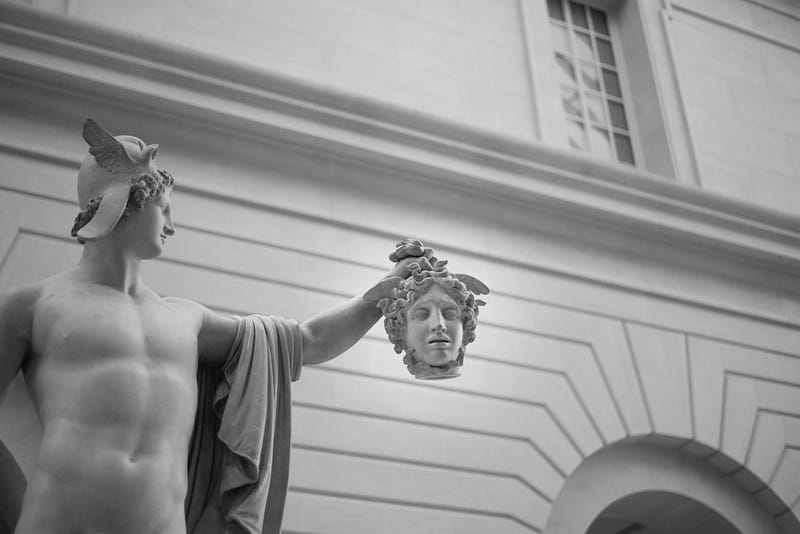Do You Want Justice or Revenge?
If it’s the latter, take a moment to think critically about what your choice means.

We Need To Talk
Everyone can agree we have a problem. Each morning I scroll through news articles and more often than not there’s at least a few about shootings; either a school or public road rage. It’s coming to a point that we’ve become numb to the good things in life. How can we enjoy our lives knowing this might happen at any moment? New drills are added to the school’s roster; 'What to do during an active shooter’. Education is a game of survival now.
A Blind World
Do you recall that simple rhyme from elementary school? I get it, it’s been a while. In the stress of the situation, your first thought probably isn’t: “an eye for an eye makes the whole world blind". That’s probably not even on your radar. It’s easy to say, harder to abide by in circumstances when it seems like the only right answer.
One of the recent school shooters was found guilty and sentenced to life in prison. Some people have voiced their anger that he wasn’t given the death penalty; that’s what’s fair in this situation, right?
But my question is why?
Currently twenty-seven states have capital punishment as an option for the most heinous crimes committed. Some states have multiple methods such as lethal injection or electrocution.
I’ve never agreed with the death penalty, but I’ve also never had my emotions tested by a tragedy like having a loved one taken because of the actions of another person. Even so I wonder to myself: do I have the right to decide someone needs to die?
There’s no question that criminals convicted of crimes like mass shootings need to pay for their actions. However, if we choose to administer the death penalty — why is that not a form of hypocrisy? How are we any better than the murderer? An eye for an eye makes the whole world blind and it leaves us with blood on our hands.
Why Should They Get Three Meals A Day?
I can hear the argument from a mile away. An innocent person was taken away too soon, so why should the convicted felon get to live their natural life? On one hand I would argue that killing the convicted felon won’t make the situation reverse. It accomplishes nothing, except perhaps to ease the grief for a brief moment. On the other hand, I’d like to point out that being locked in a cage forever seems a harsher punishment than a quick death. How do you think one’s mental state handles knowing they’ll never be free again? After ten years? After twenty? Living out your life in prison is not exactly a walk in the park.
An Example of Death Row
In 1993, John Lotter killed Brandon Teena and two others; years later his lawyer argued that he could not be put on death row because of his low IQ (which was similar to that of an 8-year old). If it’s considered unmoral to put these criminals to death — those who have no cognitive realization about their actions — why still, are we allowed to kill those who have a normal IQ? The same crime but different punishments? How is this justifiable?
In Lotter’s case it didn’t matter; in 2018 a judge threw out his lawyers argument, stating it had no merit years after the conviction. But the other issue at hand is that Lotter committed this crime in 1993 and as of 2022 he is still on death row — over twenty years after his conviction.
How then is justice served, if criminals are still living most of their natural life in prison anyway? Do we need the death penalty or does it only serve those who are grieving — and thus, biased in their thinking?
Things To Think About
Does the death penalty serve justice for these crimes, or are we too afraid to admit it’s revenge that we truly seek? And if it’s the latter, why do we get to decide on the ultimate penalty?
As much as we’d like to try and stop it, there will always be bad people who do the unthinkable. Some have mental issues and some just make bad choices. It’s the darker part of the human condition.
So, when these terrible crimes are carried out and we have the chance to make the final decision… are you looking for justice or revenge?




Comments ()